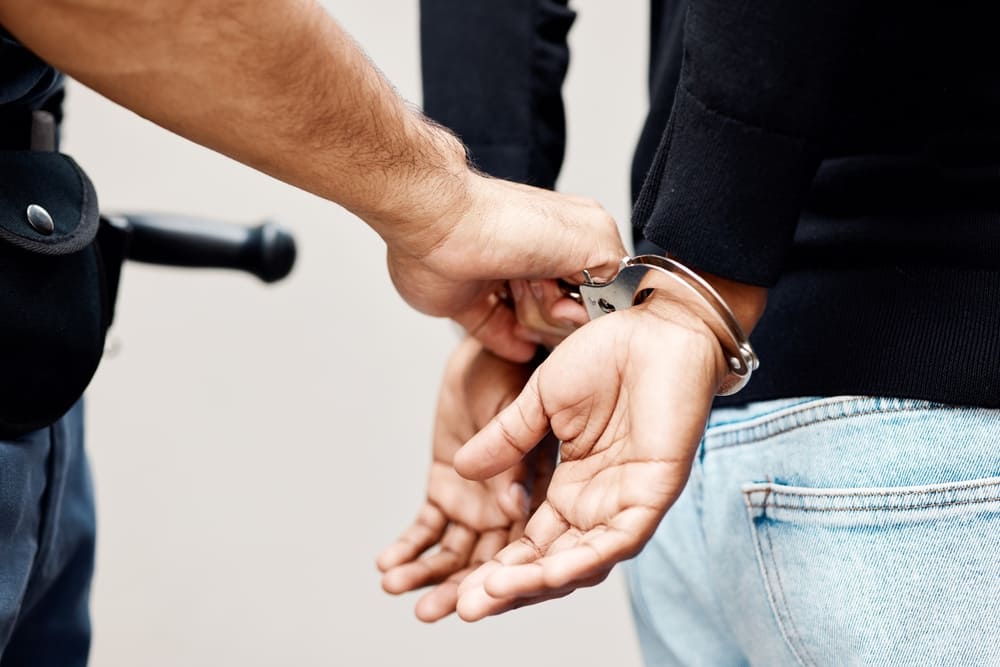
When you’re dealing with the legal system in California, understanding your options for release from custody is essential. You’ll likely hear the terms cash or bond bail used frequently, sometimes even interchangeably. But these two methods of securing release aren’t the same thing.
Let’s break down the differences between cash bond vs bail and help you understand which option might work best for your situation.
What is a Cash Bail?
Cash bail is straightforward — you pay the entire bail amount directly to the court in cash. When a judge sets bail at your hearing, you’ll need to provide the full amount before you can be released.
The money serves as a guarantee that you’ll show up for your future court dates.
In California, the county’s bail schedule determines the amount of bail, which lists standard bail amounts for different offenses.
The judge has some discretion to adjust these amounts based on factors like your criminal history, community ties, and flight risk. They’ll also consider your ability to pay — California law now prohibits courts from holding people in custody solely because they can’t afford bail.
If you make all your court appearances and follow the conditions of your release, you’ll get most of your money back at the end of your case.
You might lose a small administrative fee, but the bulk of your payment will be returned. The court can also apply your bail money to any fines or restitution ordered in your case.
What is a Bond?
A bond works differently than cash bail. Instead of paying the full amount yourself, you work with a bail bondsman who provides a guarantee to the court. The bondsman promises to pay your entire bail amount if you don’t show up for court.
You’ll pay the bondsman a premium which is typically 10% of your total bail amount in California. So, if your bail is set at $20,000, you’d pay the bondsman $2,000. This fee isn’t refundable, even if you make all your court appearances.
Differences Between Bond and Cash Bail
If you have a lot of questions regarding bail and bail bonds, these are the main differences between the two:
Cost and Refunds
With cash bail, you’ll need to pay 100% of the bail amount upfront, but you’ll get most of it back if you follow all court requirements. With a bond, you only pay 10%, but you won’t get that money back — it’s a fee for the bondsman’s service.
Who Is Involved
Cash bail is just between you and the court. Bond arrangements involve three parties — you, the court, and the bail bond company. This means more paperwork and potentially more complexity.
Financial Risk
When you post cash bail, your risk is limited to the bail amount. With a bond, you might need to provide collateral, and if you skip court, the bondsman can legally pursue you for the full bail amount.
The Advantages of a Cash Bail vs Bond
If you can afford to post the full amount, cash bail often makes more financial sense. Here’s why:
- You’ll get most of your money back after your case ends
- There’s no need to pay non-refundable fees
- The process is simpler with fewer parties involved
- You maintain more privacy since you’re not involving a bail bond company
- You won’t need to provide collateral
The Advantages of a Bail Bond vs Cash Bond
Bail bonds offer their own set of benefits that make them an attractive option:
- You only need to pay 10% of the bail amount
- You can get out of custody with less money upfront
- The bail bond company handles the paperwork
- You can keep more of your cash available for other expenses
- The process can be faster than gathering full cash bail
Working with a bail bond company also gives you access to their expertise in navigating the legal system. We understand the local courts and procedures, which can be especially helpful if you’re unfamiliar with the process.
We can explain your obligations, help ensure you understand your court dates, and guide you through the requirements for maintaining your release.

Frequently Asked Questions
How much cash do you need for a bond?
In California, you’ll typically need 10% of the total bail amount to secure a bond. State law sets this percentage and isn’t negotiable. Some bond companies might offer payment plans, but you’ll still need to pay the full 10% eventually.
What does a $10,000 secured bond mean?
A $10,000 secured bond means the court has set bail at $10,000. If you use a bond company, you’d need to pay them $1,000 (10%) to secure your release. The “secured” part means either your payment to the bondsman or some form of collateral backs the bond.
What are the cons of cash bail?
The main cons of cash bail include:
- You need a large amount of money upfront
Your cash is tied up until your case ends- You might need to liquidate assets quickly
- The money isn’t available for other needs like legal fees
Is it better to pay bail or bond?
If you can afford the full amount, paying cash bail usually saves you money in the long run since you’ll get most of it back. But if coming up with the full amount would create financial hardship, a bond might be your best option despite the non-refundable fee.
Can a bail bondsman help with a cash only bond?
If a judge specifically orders “cash only” bail, a bail bondsman can’t help — you’ll need to provide the full amount in cash. These orders are relatively rare in California but do happen in certain cases.
Final Thoughts
Your choice between cash bond vs bail comes down to your financial situation. If you can pay the full amount, cash bail typically saves you money since you’ll get most of it back. If you need a faster release with less money upfront, a bail bond might be your better option.
Remember that in California, courts must consider your ability to pay when setting bail amounts. Both options require you to make all court appearances — missing them can result in serious consequences.